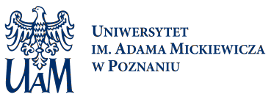History behind the PAIA
The earliest stages of the Institute organization reach the early 90’s of XXth century. The main involved persons at that time were Professors Krzysztof Nowicki and Kazimierz Lewartowski. The idea of the Institute was close to fulfillment as in 1994 the Greek authorities gave their permission to found the Polish Archaeological Institute at Athens. Unfortunately the organizational and financial matters did not allow a real activity of this project. At the beginning of this century, the idea rose up again and embraced much wider group of people, representing numerous institutions from Poland. Since 2009 various meetings took place, at first at unformal level and then more formalized, among which the permanent members were Professors: Ewdoksia Papuci-Władyka (Jagiellonian University in Cracow), Krzysztof Nowicki (Institute of Archaeology and Ethnology of Polish Academy of Sciences), Kazimierz Lewartowski (Warsaw University), Janusz Czebreszuk (Adam Mickiewicz University in Poznań) and Daniel Makowiecki (Nicolaus Copernicus University in Toruń). Back then, an idea to create the consortium was hatched and the main principal aim of this group was to establish the Polish Archaeological Institute at Athens. The consortium officially started activity on 27th of February 2012 and comprised the Institute of Archaeology and Ethnology of Polish Academy of Sciences (as a coordinator), Polish Academy of Sciences and Arts in Cracow, Jagiellonian University in Cracow, Adam Mickiewicz University in Poznań, Cardinal Stefan Wyszyński University in Warsaw, Nicolaus Copernicus University in Toruń and the Warsaw University. Afterwards some discussion were undertaken in three Polish Ministries, namely the Ministry of Science and Higher Education, Ministry of Foreign Affairs and the Ministry of Culture and National Heritage. Despite the full understanding of our postulates these discussions did not bring any sizeable effects except our growing knowledge on the legal complications of this initiative and establishment of PAIA. In the following years, several new concepts emerged and fell, such as to align the PAIA as the unit of the Polish Academy of Sciences (in 2014) or to locate the Institute in the building of the former Polish Consulate on the premises of the Polish Embassy in Athens (in 2016). Also in the meantime the entire idea of consortium was taken into question as it did not have a form of a legal entity. In the first half of 2017 a significant meeting took place in the Ministry of Science and Higher Education. Vice-minister, Prof. Łukasz Szumowski pointed out then, that the only legal way to constitute the PAIA is to establish it as a part of an already existing scientific institution. Such institution will afterwards sign the agreements with other interested participants, in order for them to support and use the services of PAIA. This scenario was brought into action.
The establishment of PAIA would not be possible without the support of the Poland’s Ministry of Science and Higher Education (financial aid) and Ministry of Foreign Affairs – including the Polish Embassy in Athens. This success took place also due to a fruitful cooperation of the Adam Mickiewicz University in Poznań’s employees of various ranks, as well as numerous Colleagues from all of the institutions that took part in the process and dozens of people of good will. In this place it is essential to mention one of them – Dr. Bartosz Józwiak, member of the parliament of VIII cadency, archaeologist and the alumnus of Adam Mickiewicz University in Poznań.
The establishment of PAIA would not be possible without the support of the Poland’s Ministry of Science and Higher Education (financial aid) and Ministry of Foreign Affairs – including the Polish Embassy in Athens. This success took place also due to a fruitful cooperation of the Adam Mickiewicz University in Poznań’s employees of various ranks, as well as numerous Colleagues from all of the institutions that took part in the process and dozens of people of good will. In this place it is essential to mention one of them – Dr. Bartosz Józwiak, member of the parliament of VIII cadency, archaeologist and the alumnus of Adam Mickiewicz University in Poznań.
